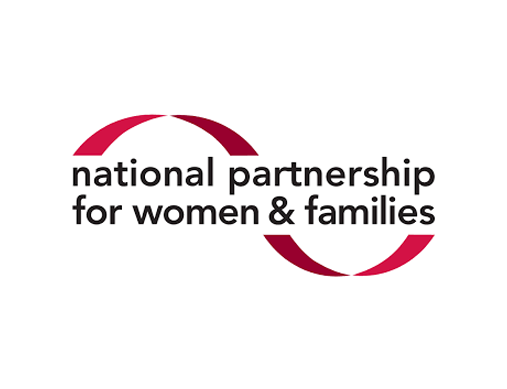What is the National Partnership for Women and Families’ issue focus?
The National Partnership for Women & Families focuses on the issues of gender and racial equity in the workplace, improving access to affordable, quality health care that meets the needs of all women and families, and reproductive freedom and justice.
Current campaign or project you’d like to highlight: What is something the National Partnership for Women and Families is currently prioritizing? Can you tell our readers a little about the goals of the campaign/project?
Our recent report on Minimum Wage and Abortion Access showcases how policy areas are interconnected. This report is at the crux of economic justice and health justice—focusing on the need for raising the minimum wage and its impacts on reproductive health decisions for many people and their families. Women (particularly women of color) are the majority of the minimum wage workforce, leading them to have fewer choices when it comes to health care access. It’s important that we raise the minimum wage so that workers don’t have to choose between their health, their jobs, or their families.
Do you have an “Advocacy Tip” to share or “Lesson Learned” while organizing this or other campaigns? Do you have any general words of wisdom that you’d like to share with other staff engaged in advocacy?
A tip on working in coalitions is to be reflective of who’s at the table, who’s sharing and uplifting stories, and who’s still missing. Leveraging our resources and supporting organizations which might not have the reach that the National Partnership has is a must in narrowing the gaps that exist in advocacy. Acknowledging the history of the National Partnership and knowing where we must continue to improve helps us create a strategic vision with equity, diversity, and justice at the forefront.
Many of our member organizations work with both our Bolder Advocacy initiative on c3/c4 advocacy rules and guidance, and our Justice programs on the importance of the courts and judicial nominations. How has either or both most helped you? How have you worked with either or both?
The Reproductive Rights, Health, and Justice Resource Guide is helpful in creating a strategic direction for the National Partnership’s work. Knowing the difference and similarities of reproductive rights, health, and justice helps define the niche of work that we engage with and reminds us not to overstep or encroach in spaces where we’re not. Understanding and defining the limits of our work based on c3 or c4 capabilities are also important to know—the listings of different advocacy work from organizations and groups are great examples of the spectrum of actions we can take on reproductive issues.
Who inspires you?
Grace Lee Boggs is an inspiration to all activists and advocates. Her intersectional work on the issues of civil rights, the environment, labor, and feminism rooted in community organizing prove that our struggles are connected. In working with housing matters, labor unions, marginalized communities, and by reflecting on her background, her experiences helped shape her views and grounded her goals for sustainable change. Her writing from a blog post titled “Seeds of Change” give insight on her methods of advocacy: “We can begin by doing small things at the local level, like planting community gardens or looking out for our neighbors. That is how change takes place in living systems: not far from above but from within, from many local actions occurring simultaneously.” She reminds us that all actions have power.
All spotlights are written by AFJ members directly. Please reach out to membership@afj.org if you’d like to complete a member spotlight
